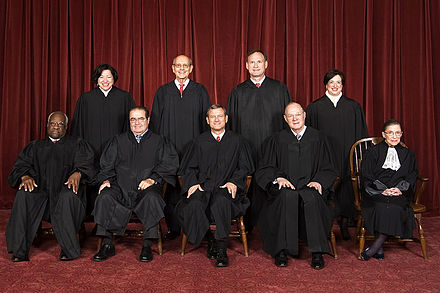The Supreme Court Agrees To Preserve Mobile Phone Privacy — But The Real Conflict Is In The Cloud
 American government is divided along liberal-conservative lines on just about everything. But the Supreme Court agreed that you can't search somebody's mobile phone without a warrant, and it wasn't a typical split decision — it was unanimous. (The other big ruling today, on the controversial question of whether Aereo can sell you streaming access to your own TV channels, was 6 to 3 against Aereo).
American government is divided along liberal-conservative lines on just about everything. But the Supreme Court agreed that you can't search somebody's mobile phone without a warrant, and it wasn't a typical split decision — it was unanimous. (The other big ruling today, on the controversial question of whether Aereo can sell you streaming access to your own TV channels, was 6 to 3 against Aereo).
Why? What is in your mobile phone?
Chief Justice John Roberts pointed out that they are "cameras, video players, Rolodexes, calendars, tape recorders, libraries, diaries, albums, televisions, maps, or newspapers." You might as well add alarm clocks, wallets, stethoscopes, and running coaches. There is literally nothing about you that your phone may not know at some point (your browsing history probably contains a lot of secrets you may want to hide from some people). If I had a choice, I'd rather have an invasive government search my house than my phone. (I wonder how many of them have phones under their robes.)
At least as important is this: As the number of devices we have multiplies, we inevitably store most of this information in the cloud. The explosion of wearable devices typically funnel their interactions through the phone. And what the phone doesn't see, it has access to through DropBox, Evernote, or hundreds of other apps that replicate cloud content. If a bit of information is not on your phone, it will be once you connect.
The spies in the US government know that cloud content is where all the secrets are, or will be. The phone ruling is great for privacy, but insufficient. The next case will address in what situations our Facebook and Google Drive accounts will be accessible to law enforcement, with or without warrants. If you're a privacy advocate, this is where to concentrate your efforts. And as Fatemeh Khatbloo has pointed out, if you own your customers' data, it's your responsibility to be a privacy advocate.